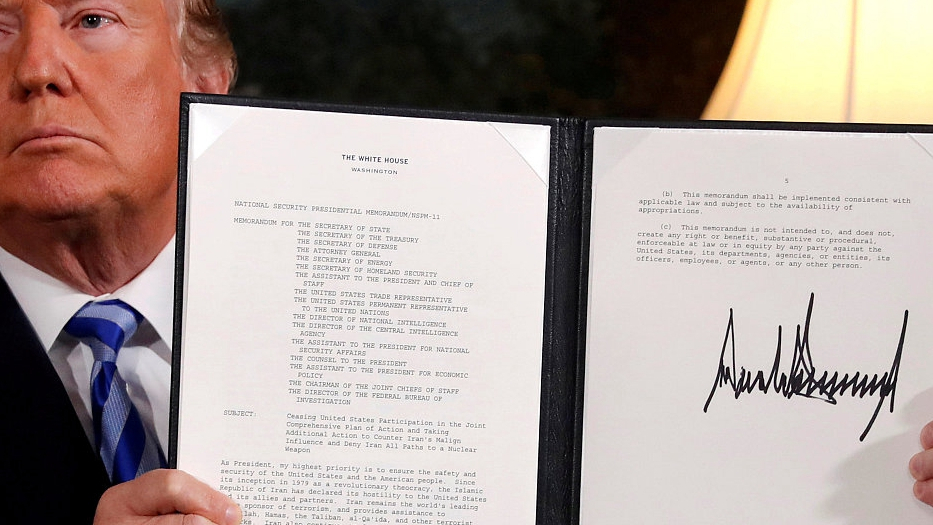
Japanese Prime Minister Shinzo Abe departed Tokyo Wednesday for a two-day trip to Iran, during which he will try to help defuse rising tensions in the Persian Gulf between Washington and Tehran.
Prior to the Japanese leader's departure from Tokyo's Haneda airport, Abe said he wanted to exchange candid views while in Iran and help ease rising tensions.
"To ease tensions, I'd like to have a frank exchange of views," Abe told reporters at the airport.
During his visit, Abe is slated to meet with Iran's Supreme Leader Ayatollah Ali Khamenei and President Hassan Rouhani and intends to try and urge Iran to stick to an international nuclear accord inked in 2015 between Iran and six major powers, including the United States, Britain, France, Germany, Russia and China.
U.S. President Donald Trump, however, has since pulled the United States out of the international nuclear deal and restored sanctions against Tehran that were scraped under the 2015 deal, leading to a backlash from Tehran and it opting to suspend some of its commitments under the deal.

U.S. President Donald Trump holds up a proclamation declaring his intention to withdraw from the Iran nuclear agreement after signing it in the Diplomatic Room at the White House in Washington DC, U.S., May 8, 2018. /VCG Photo
The U.S. sending a carrier strike force, B-52 bombers and armed troops to the Gulf, after Iran said it plans to keep more enriched uranium than is permitted under the pact, has contributed to rising tensions in the region.
Prior to this, the United States said it would on May 2 end waivers granted since November that have been applicable to certain countries including resource-poor Japan to import oil from Iran.
The Japanese prime minister believes he can help deescalate the situation as Japan has friendly ties with both Washington and Tehran.
Abe's high-stakes, yet symbolic visit to Iran will mark the first visit to be made by a Japanese prime minister to Iran since Takeo Fukuda in 1978.
In light of the escalating tensions in the region, Abe will seek to use the summit-level talks to try and urge Iran to exercise restraint and engage in dialogue as the U.S. has voiced its openness to hold further talks.
Abe garnered the support of Trump to try and help mediate the situation with Iran while the U.S. leader was in Japan for a state visit recently.
Last month, Japan formally expressed its concern over the mounting tensions in the Persian Gulf in hastily convened talks in Tokyo held between Abe and Iran's Foreign Minister Mohammad Javad Zarif.
Abe, at the time, said the issue was becoming increasingly more tense, but maintained that Japan wanted to continue to develop amicable ties with Iran.
Japan, who maintains friendly ties with Iran, relies on its Middle Eastern partner for 5 percent of its total crude oil imports, due to favorable prices.

Copyright © 2018 CGTN. Beijing ICP prepared NO.16065310-3
Copyright © 2018 CGTN. Beijing ICP prepared NO.16065310-3